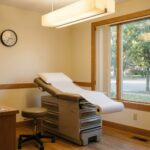
Oftentimes, the most challenging part of an injury case is relating and connecting the injuries to the trauma of the collision.
This is especially true with injuries not fully understood by the medical profession, including fibromyalgia.
There is evidence that this painful and often lifetime condition can be triggered by a trauma, especially when no symptoms were present before an accident. A lot depends on the treating physician, and his opinion of whether the condition was brought on by the trauma of an accident.
If you developed fibromyalgia after a physical trauma, it is important to stress to your doctor the severity of the collision and that symptoms appeared only after the collision.
Medical research is continually re-examining the basis of disease and the latest breakthroughs are focusing on auto-immune diseases, including fibromyalgia. However, this cutting-edge research is typically slow in percolating through the medical system and into your doctor’s office. The latest evidence is that this condition is often triggered by high impact trauma such as a car or truck accident.
If you have a look at the top mainstream online medical resource information, you will see that they suggest various alternative remedies for relief of fibromyalgia symptoms, and not much else. No drug therapy is available which cures fibromyalgia; the drugs often prescribed, either gabapentin or pregabalin (brand name Lyrica), target pain and are also prescribed for diabetic nerve pain and shingles.
There is a large category of auto-immune diseases (also referred to as Th1 inflammatory diseases) in which genes play a role, and gene linkage tends to be a marker, but not a definitive predictor. In other words, once you have the disease, looking at the genes can confirm your diagnosis, but it can’t sufficiently explain why you got sick. Other factors in the equation are missing. In fact, auto-immune diseases like fibromyalgia are still the “black hole” of medicine, meaning that frequently sufferers are not helped, or indeed even diagnosed. That has meant that patients struggle, only to be told that there’s nothing “really” wrong, or “it’s all in your head.”
Better news is on the way, as researchers are now looking at the largely-ignored human microbiome for clues to other disease causes. Every human has many cells in his or her body, but about 90% of these cells are not human cells, but microbes which inhabit our body as individual cells, or as “biofilms”—layers of microbial communities inside our bodies. These play a major part in the development of autoimmune disease, as do environmental factors such as a high-carbohydrate diet and stress.
The newly-discovered mechanism is called HGT—horizontal gene transfer, and refers to microbial injection of its genetic material into the host or another pathogen. Many of these diseases are linked, so that once common pathways are discovered there will be hope for many patients with differing symptoms, including those with fibromyalgia. In this model, genes may simply point to which areas in your body are the most susceptible.
Surprisingly, a plan of long-term antibiotics and diet developed by the Autoimmunity Research Foundation, the “Marshall Protocol”, may provide an eventual cure for auto-immune disease, which seems to be caused by bacteria which have disrupted normal immune function. Going back to our original question, there may be no way of knowing whether you picked up these harmful bacteria in the hospital, or whether you were already exposed and the trauma weakened your resistance. What is certain is that this is one more challenge to your recovery.
Stillman & Friedland hopes that this information helps you along in your recovery. If you are interested in other people’s personal stories and information on the innovative Marshall Protocol, please see the ARF website and their Bacteriality page for a sample of personal answers to health questions. Another good source of cutting-edge medical research is the Sanford-Burnham Foundation’s Beaker blog. We encourage you or a loved one to explore the latest information available and share it with your treating physician, or another medical professional who is open to innovation.
At Stillman and Friedland we stay informed so we can do everything possible to assure you are compensated for all your injuries, those well known and those not as well understood.
Call jay or mike anytime at 615-244-2111 or jay@jstillman.com






